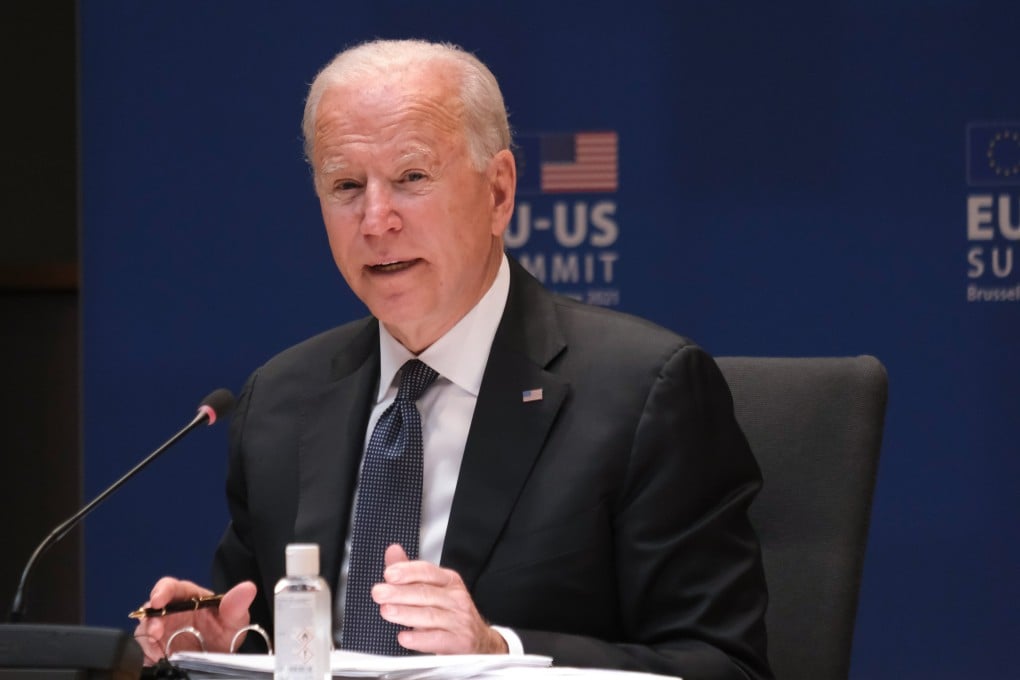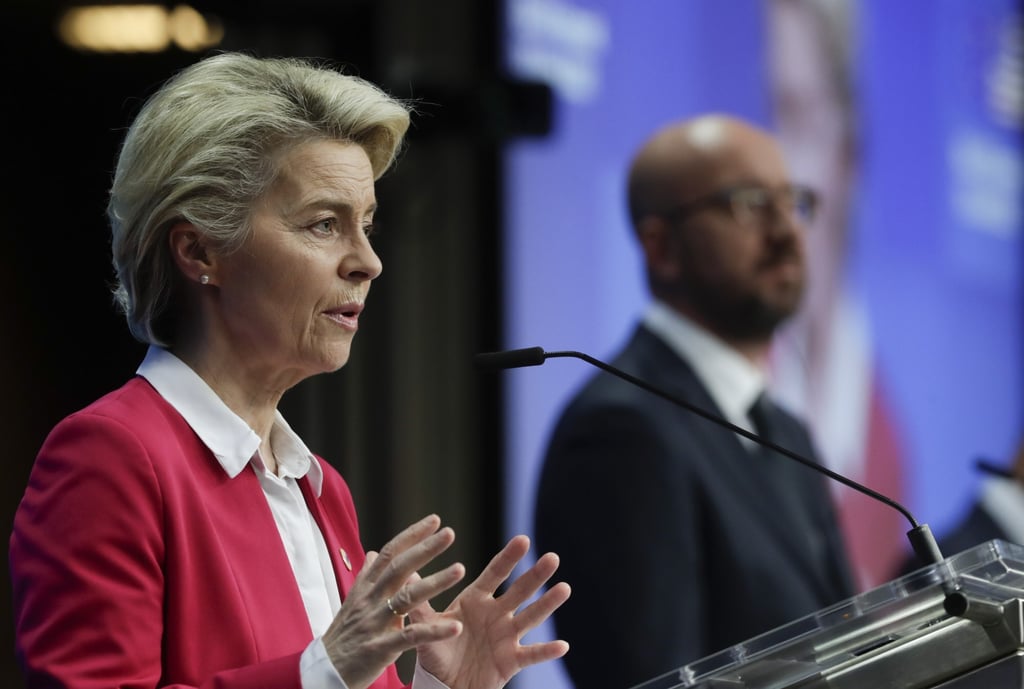Advertisement
Beijing can stay calm amid new EU-US pact as interests of Washington, Brussels are not aligned
- The EU-US Trade and Technology Council was launched on Tuesday to serve as a forum for the two sides to coordinate their efforts amid the challenge from China
- It marked the latest salvo by the Biden administration against Beijing during his recent European tour
Reading Time:4 minutes
Why you can trust SCMP
21

Beijing should remain calm in the face of a new EU-US trade and technology pact to overcome competition from China, as the interests between Washington and Brussels are still misaligned, according to experts.
“The transatlantic tech council may foster better cooperation on standards, which is important, but in other areas it will probably just be a talk shop,” said Douglas Fuller, an associate professor at the City University of Hong Kong. “Hard to have deep cooperation when interests are not fully aligned.”
US President Joe Biden and European Commission President Ursula von der Leyen launched in Brussels on Tuesday the EU-US Trade and Technology Council, which will serve as a forum for the two sides to coordinate on removing trade barriers, setting global standards and promoting joint innovation in key technologies.
Advertisement
The council, however, is not enabled with legal teeth or necessary authority to enforce sanctions.
It marked the latest salvo against Beijing on Biden’s recent European tour, which had seen him succeed in rallying support from the Group of Seven richest nations at their summit in Britain and the North Atlantic Treaty Organisation.

The new trade and tech pact between the EU and the US came about three weeks after Washington and South Korea agreed to deepen their alliance to include expanded regional coordination on law enforcement and cybersecurity, as well as promoting greater connectivity and fostering digital innovation within the Association of Southeast Asian Nations.
Advertisement
Select Voice
Choose your listening speed
Get through articles 2x faster
1.25x
250 WPM
Slow
Average
Fast
1.25x